Are you tired of the frustration that comes with no-show appointments? We understand how valuable your time is, which is why we've crafted a no-show appointment policy designed to create a more efficient experience for everyone. This policy not only helps us serve our clients better but also encourages accountability and respect for our scheduled time together. Curious to learn more about our policy and how it may affect your upcoming appointments? Keep reading!

Clear policy statement
A no-show appointment policy is vital for healthcare providers to manage schedules effectively. It typically states that if a patient fails to attend their scheduled appointment without prior notification, they may incur a fee. For example, many clinics might charge a fee of $50 if a patient does not cancel within 24 hours. This policy aims to minimize lost revenue, ensure availability for other patients, and encourage responsibility. Notifying patients about the potential punitive fees helps maintain open communication and reinforces the importance of attendance, thereby optimizing practice efficiency.
Consequences of no-show
No-show appointments can have significant consequences for both service providers and clients. A no-show occurs when a client fails to attend a scheduled appointment without prior notification, impacting scheduling for other clients. Frequent no-shows can result in loss of revenue for businesses due to unutilized time slots--studies suggest that up to 30% of scheduled appointments may result in no-shows, particularly in healthcare settings. Consequences may include a cancellation fee (often ranging from $25 to $150 depending on the industry), a requirement for prepayment for future appointments, or potential termination of client services after multiple no-show incidents. Moreover, no-show rates can lead to increased waiting times for other clients, diminishing overall service quality, and operational efficiency. Implementing a no-show policy helps maintain accountability and ensures that all clients receive fair access to services.
Rescheduling procedure
An effective letter template addressing no-show appointment policy should outline the rescheduling procedure clearly. It must specify the importance of notifying the service provider, such as a healthcare clinic or counseling office, at least 24 hours before the scheduled appointment. The template should highlight potential consequences of a no-show, including fees or restrictions on future bookings, to emphasize accountability. Furthermore, it should provide a straightforward process for rescheduling, including available contact methods like phone calls or online forms, ensuring that clients are aware of the options to easily rearrange their appointments. Clear instructions and a friendly tone can enhance positive communication and foster a relationship of trust between service providers and clients.
Contact information for inquiries
A no-show appointment policy is crucial for maintaining the efficiency of service providers, particularly in settings like healthcare clinics and salons. Missing appointments can lead to wasted time and lost revenue, impacting both the business and other clients seeking services. The policy should clearly outline the consequences of failing to attend scheduled appointments, such as cancellation fees (often a flat rate or a percentage of service costs), as well as potential limitations on future bookings. It is also essential to provide contact information for inquiries, including phone numbers, email addresses, and office hours for clients to seek clarification or discuss rescheduling. Ensuring clients understand the policy promotes accountability and encourages communication, reducing the likelihood of no-shows.
Appreciation for understanding
The no-show appointment policy is essential for maintaining efficiency in healthcare settings, such as local clinics or dental offices. Patients who miss scheduled appointments without prior notification impact not only their own care but also disrupt the schedules of healthcare professionals. Each missed appointment results in wasted resources and lost opportunities for other patients seeking timely treatment. To address this issue, many practices implement a policy that includes a fee for repeated no-shows, typically ranging from $25 to $100, depending on the service. This ensures that patients remain committed to their appointments, understanding the importance of their participation in their health journey. Appreciation for understanding this policy fosters a respectful relationship between patients and healthcare providers.
Letter Template For No-Show Appointment Policy Samples
Letter template of no-show appointment policy for psychotherapy sessions
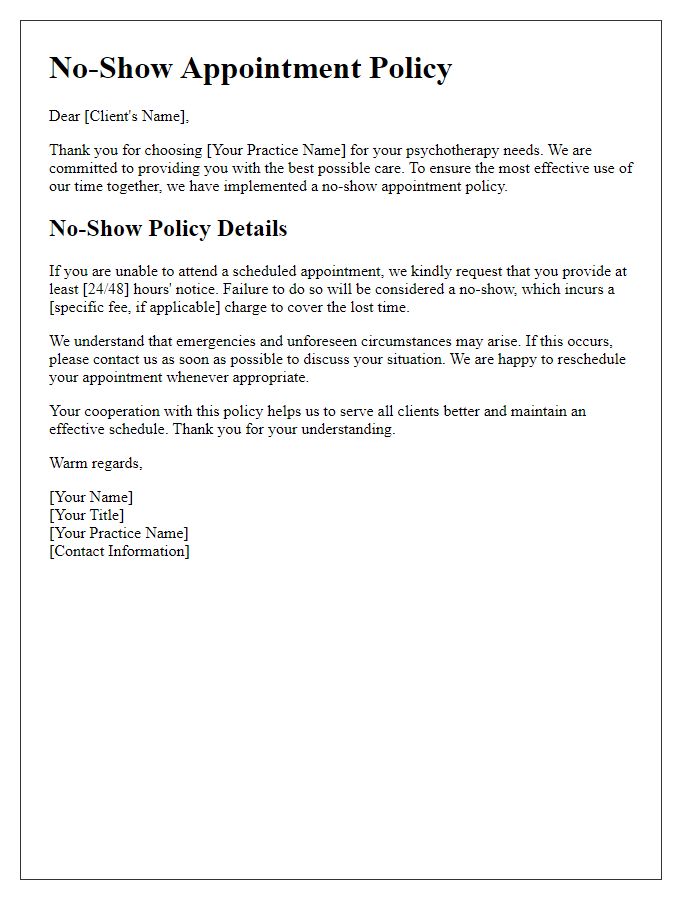

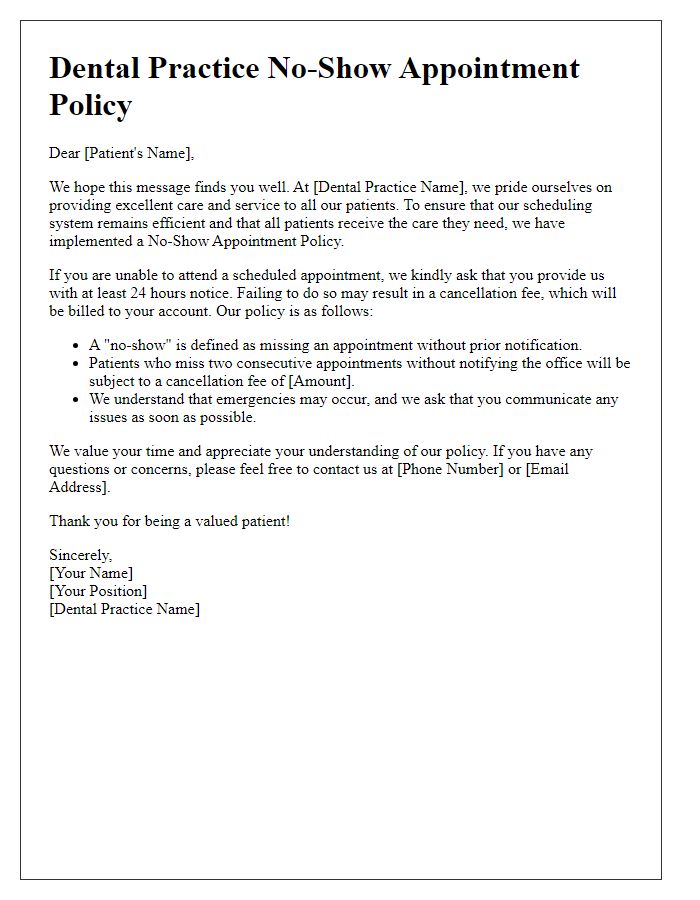
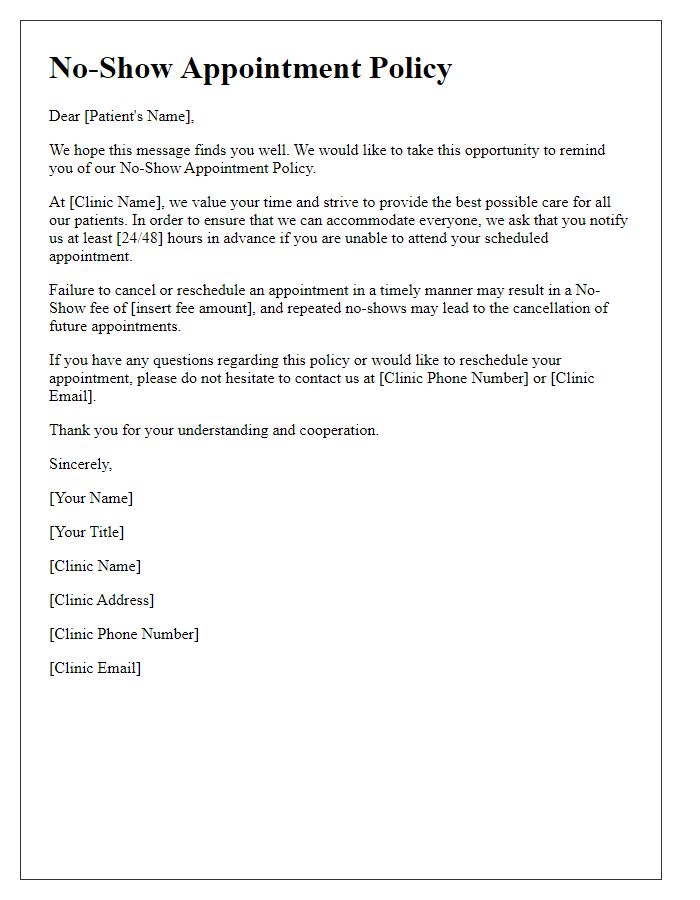
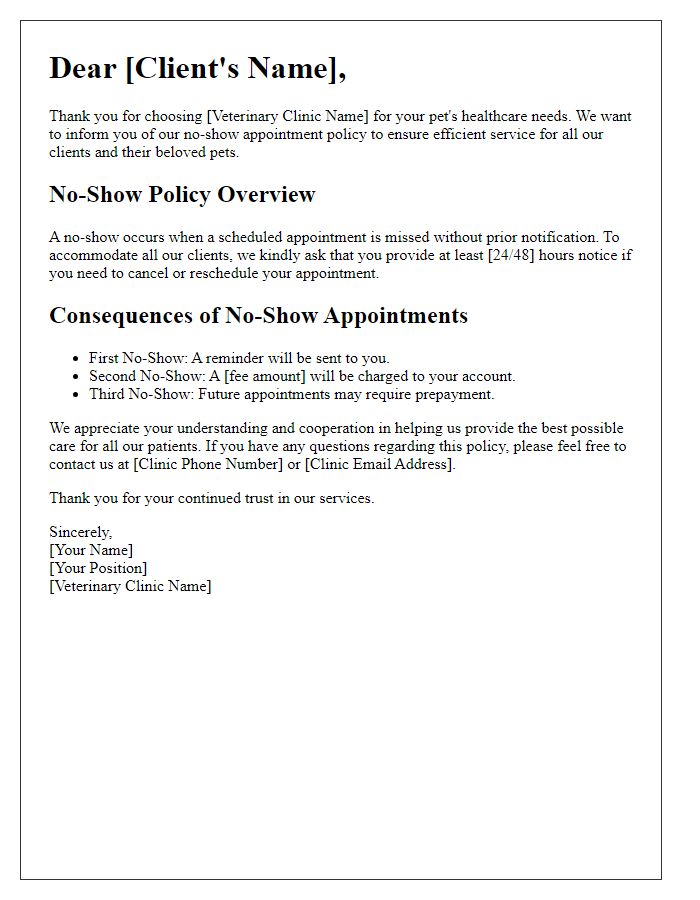
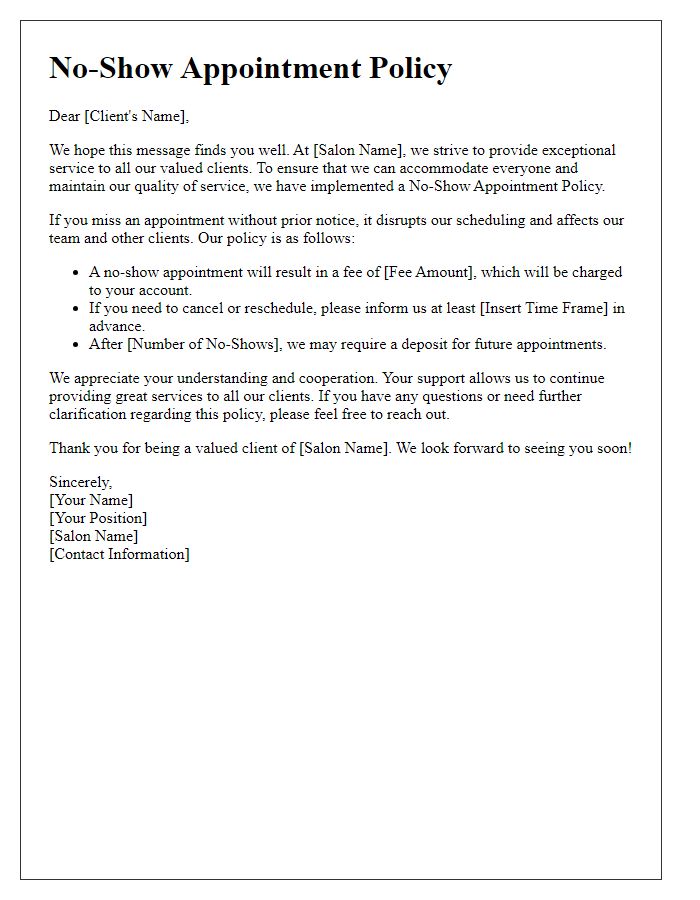
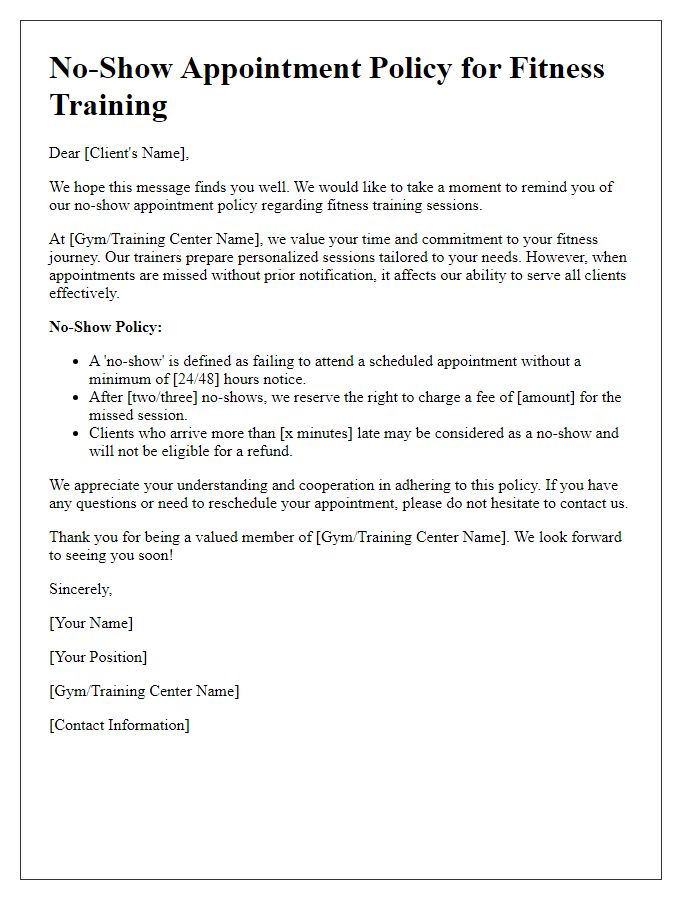
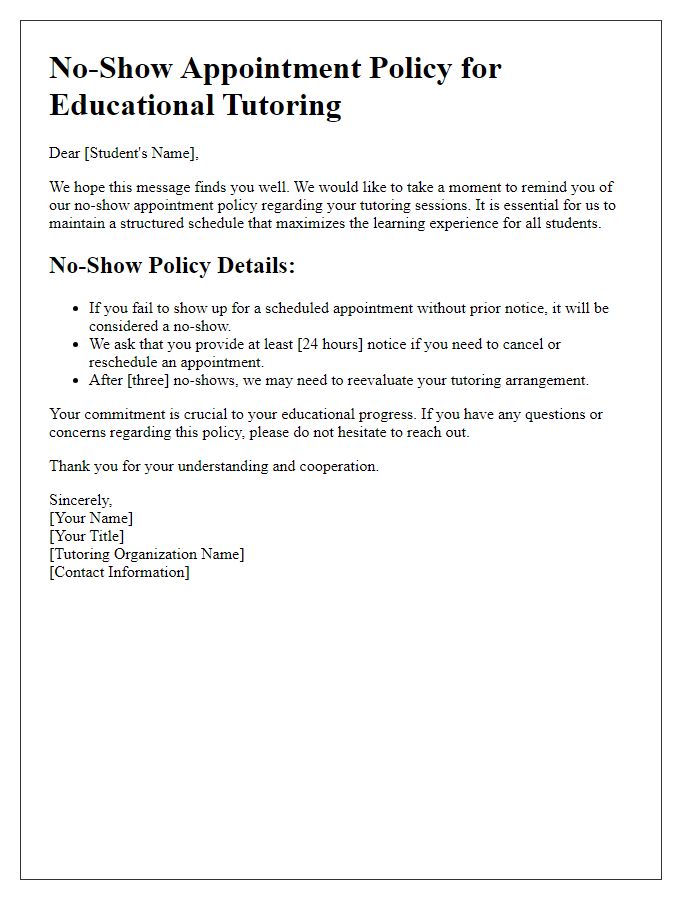
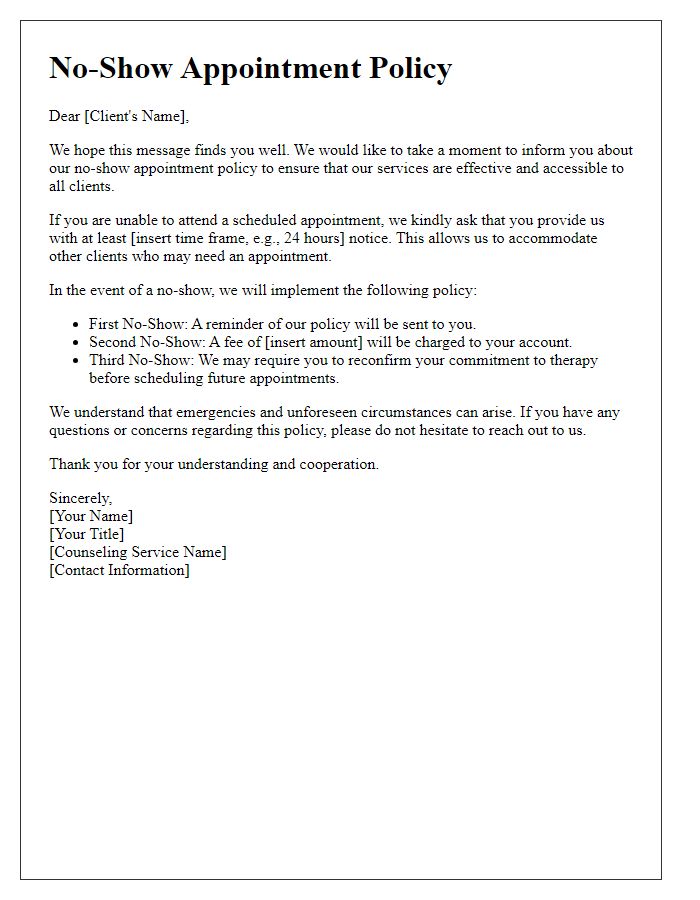
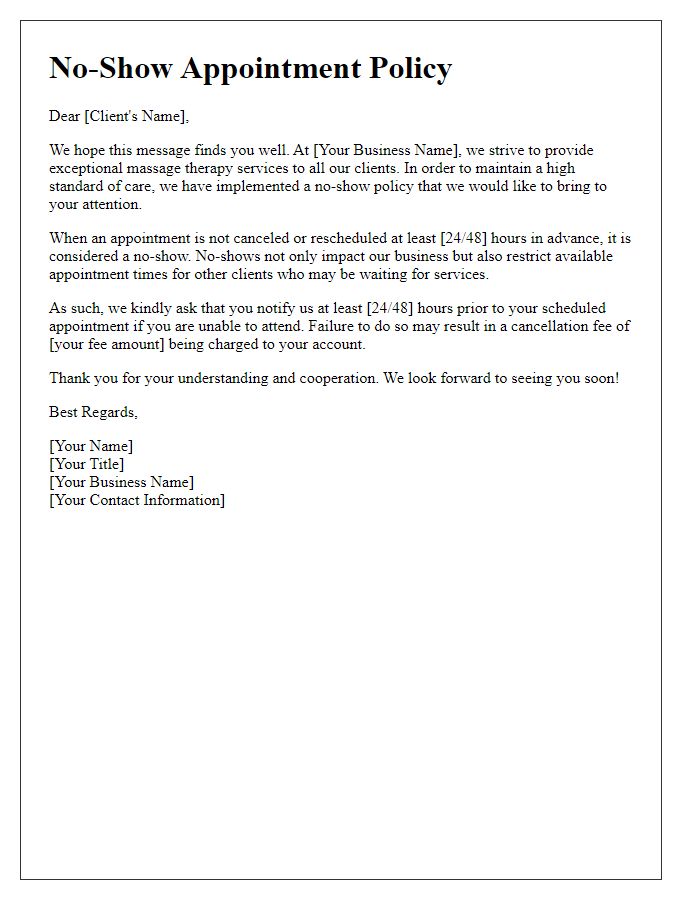
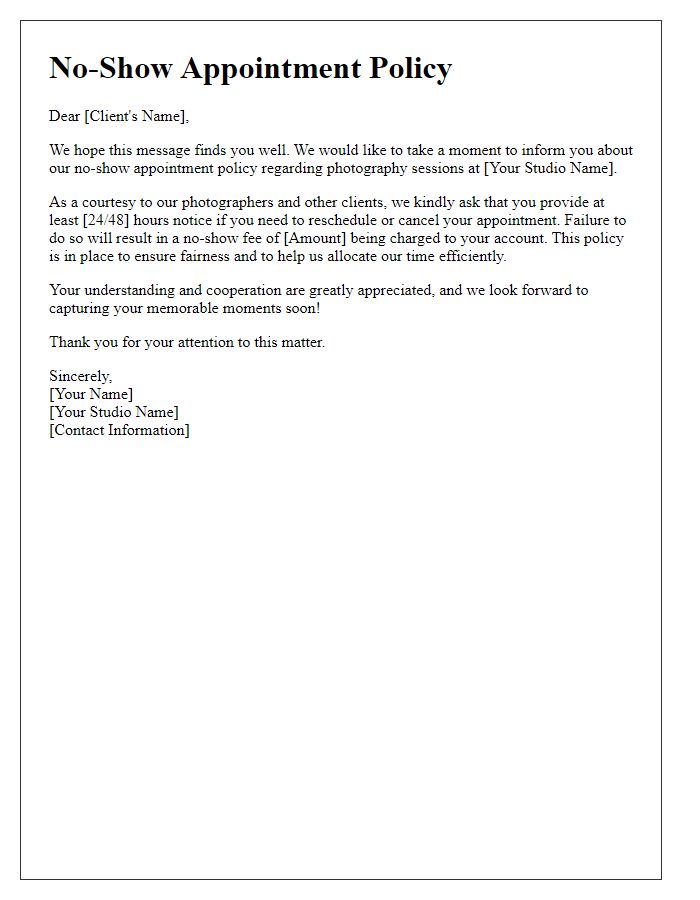


Comments